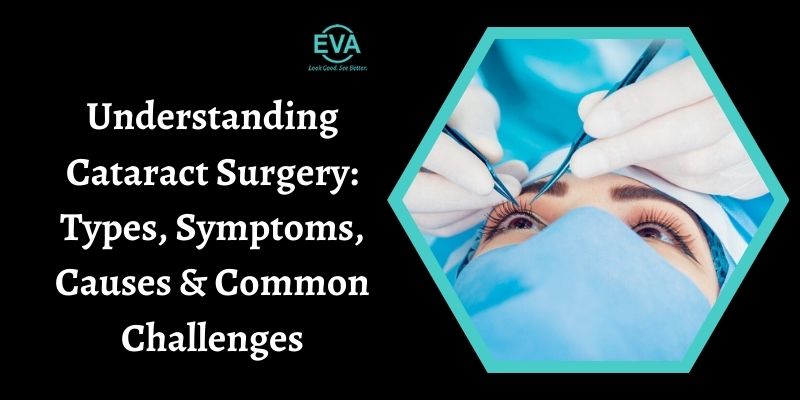Cataract Surgery: Types, Symptoms, Causes & Common Challenges

Cataracts are a common eye condition that can significantly affect one's vision and quality of life. Fortunately, advancements in medical technology, coupled with the expertise of skilled eye surgeons, have made cataract surgery a highly effective and safe procedure. For individuals in Delhi seeking the best eye care, finding a reputable cataract surgeon is crucial. In this blog, we'll delve into the various aspects of cataract surgery, including types, symptoms, causes, and common challenges, while also highlighting the importance of choosing the right best eye surgeon in Delhi.
Types of Cataract Surgery:
Phacoemulsification: This is the most common type of cataract surgery, where an ultrasonic device breaks up the cloudy lens and removes it through a small incision.
Extracapsular Cataract Extraction (ECCE): In this procedure, the surgeon removes the cloudy lens in one piece, leaving the thin outer membrane intact.
Laser-Assisted Cataract Surgery: Utilizing laser technology, this procedure offers greater precision and customization, potentially leading to quicker recovery and improved outcomes.
Symptoms of Cataracts:
Blurred or cloudy vision
Difficulty seeing at night
Increased sensitivity to glare
Seeing halos around lights
Colors appearing faded or yellowed
Causes of Cataracts:
Aging: The natural aging process leads to changes in the lens proteins, causing them to clump together and cloud the vision.
Genetics: Some individuals may be more predisposed to developing cataracts due to genetic factors.
Medical Conditions: Conditions like diabetes, hypertension, and obesity can increase the risk of cataracts.
Trauma: Eye injuries or surgery can sometimes trigger the development of cataracts.
Prolonged UV Exposure: Excessive exposure to ultraviolet radiation from the sun can accelerate cataract formation.
Common Challenges in Cataract Surgery:
Posterior Capsule Opacification (PCO): Sometimes, the back of the lens capsule may become cloudy after surgery, leading to blurred vision. This can be easily treated with a simple laser procedure.
Intraocular Lens (IOL) Dislocation: The artificial lens implanted during cataract surgery may occasionally shift out of position, causing visual disturbances. This can require a minor surgical intervention to reposition the lens.
Endophthalmitis: Although rare, this severe infection of the eye can occur after cataract surgery. Prompt treatment with antibiotics is essential to prevent vision loss.
Refractive Errors: Some patients may still require glasses or contact lenses for optimal vision correction following cataract surgery, especially if they have pre-existing refractive errors like astigmatism.
Choosing the Best Eye Surgeon in Delhi:
When it comes to something as precious as your eyesight, it's imperative to entrust your care to a skilled and experienced cataract surgeon in Delhi. Look for a surgeon who:
Is board-certified and has undergone specialized training in cataract surgery.
Utilizes state-of-the-art technology and techniques to ensure the best possible outcomes.
Has a proven track record of successful surgeries and satisfied patients.
Take the time to listen to your concerns, thoroughly explain the procedure, and address any questions you may have.
Conclusion:
Cataract surgery has transformed the lives of millions of people worldwide, restoring clarity and sharpness to their vision. It is crucial to choose the right eye specialist doctor in Delhi when access to quality healthcare is paramount. By understanding the types, symptoms, causes, and common challenges associated with cataracts, individuals can make informed decisions about their eye care and take proactive steps toward achieving better vision and improved quality of life.

